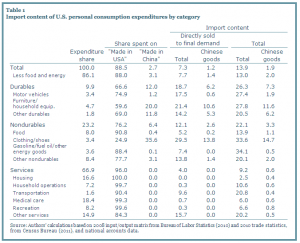There’s something really disturbing about Obama’s speech at Johnson Controls today: he barely claimed credit for the government’s involvement in it.
Understand, I think the opening of factories like Johnson Controls the single biggest piece of good news in our economy today. It’s good news because we’re investing in new manufacturing jobs. It’s good news because it helps us move away from our dependence on fossil fuels. And it’s good news because the technologies will help us do something about climate change. Obama’s investment in energy technology jobs may well be the single best thing he has done as President.
So I’ve been waiting for Obama to come claim credit for the factories in Holland since they were built. Since then, Rick Snyder and Crazy Pete Hoekstra have hailed these new factories, all the while pretending that capitalists did the work all by themselves, with nothing more than a tax cut from the government. I’ve been waiting for Obama to correct the record and explain how important government investment can be–particularly at a time when no one else is investing.
But it took him 1095 words–over a third of the speech–before he offered the following vague explanation for what made the factory possible.
But what also made this possible are the actions that we took together, as a nation, through our government –- the fact that we were willing to invest in the research and the technology that holds so much promise for jobs and growth; the fact that we helped create together the conditions where businesses like this can prosper.
No mention of precisely what the government did or how it invested. No mention of how many jobs that investment created (JCI’s CEO made some of that case).
And Obama’s weak claim of credit came long after Obama’s first explanation (coming 210 words in) for what created these jobs,
The reason a plant like this exists is because we are a country of unmatched freedom, where groundbreaking ideas flourish.
And it came in the paragraph after Obama’s second explanation for what created these jobs,
So let’s think about it — what made this possible? The most important part is you: your drive, your work ethic, your ingenuity, your management. The grit and optimism that says, “We’ve got an idea for a new battery technology or a new manufacturing process, and we’re going to take that leap and we’re going to make an investment. And we’re going to hire some folks and we’re going to see it through.” That’s what made it possible.
It seems that Obama would rather push a Milton Friedmanesque notion of capitalism–arguing freedom creates jobs–than take clear, proud credit for the government’s role in creating them.
Obama had no problem claiming credit for the government’s role in creating jobs when he broke ground on a different battery factory (the LG Chem one) in Holland a year ago. After first invoking the auto bailout (and admitting it was an unpopular decision), Obama described clearly that the factory relied, in part, on a government grant for funding.
And through small business loans, a focus on research and development and investments in high-tech, fast-growing sectors like clean energy, we’ve aimed to grow our economy by harnessing the innovative spirit of the American people.
Because we did, shovels will soon be moving earth and trucks will soon be pouring concrete where we are standing. Because of a grant to this company, a grant that’s leveraging more than 150 million private dollars, as many as 300 people will be put to work doing construction and another 300 will eventually be hired to operate this plant when it’s fully up and running. And this is going to lead to growth at local businesses like parts suppliers and restaurants. It will be a boost to the economy of the entire region. [my enphasis]
And he went on to boast about all the additional benefits of the investment in related jobs and increasing efficiency. That language–the language Obama used last year–is the kind of language we need to hear now that people owe their employment to such government support. It’s the kind of language that would not only support his own re-election (his approval levels in MI are barely where they need to be to win the state, particularly if Romney’s on the ballot), but it’d also help downticket Dems (Granholm had a big role in this investment), and correct the false claims made by Snyder and others.
Obama’s failure to boast loudly about the government’s role in this plant is all the more troubling given the rest of the speech.
The larger speech, after all, was about what we can do now to stimulate the economy.
Now, there are more steps that we can take to help this economy growing faster. There are things we can do right now that will put more money in your pockets; will help businesses sell more products around the world; will put people to work in Michigan and across the country.
He went on to rehearse a bunch of ideas that really won’t stimulate the economy all that much: the payroll tax cut, the trade deals, new patent law, and a veteran jobs program. And (second in the list of things we could do), as part of his call for a highway construction bill, he admitted “we’re slipping behind because we’re not investing.”
America used to have the best stuff — best roads, best airports, best seaports. We’re slipping behind because we’re not investing in it, because of politics and gridlock. Do you want to put people to work right now rebuilding America? You’ve got to send that message to Congress.
But if it’s true (and it is) that America’s falling behind because the government is not investing, if Obama’s going to try to mobilize voters to pressure Congress to do something about jobs, if what made this factory and these jobs possible was government investment, why not make a broader call for more of it?
The evidence was all there today in the form of the shiny new battery factory and the engineers running around in blue lab coats that government investment can be critically important to creating jobs. But rather than make that argument, Obama pretended that grit and freedom are all it takes to create jobs



